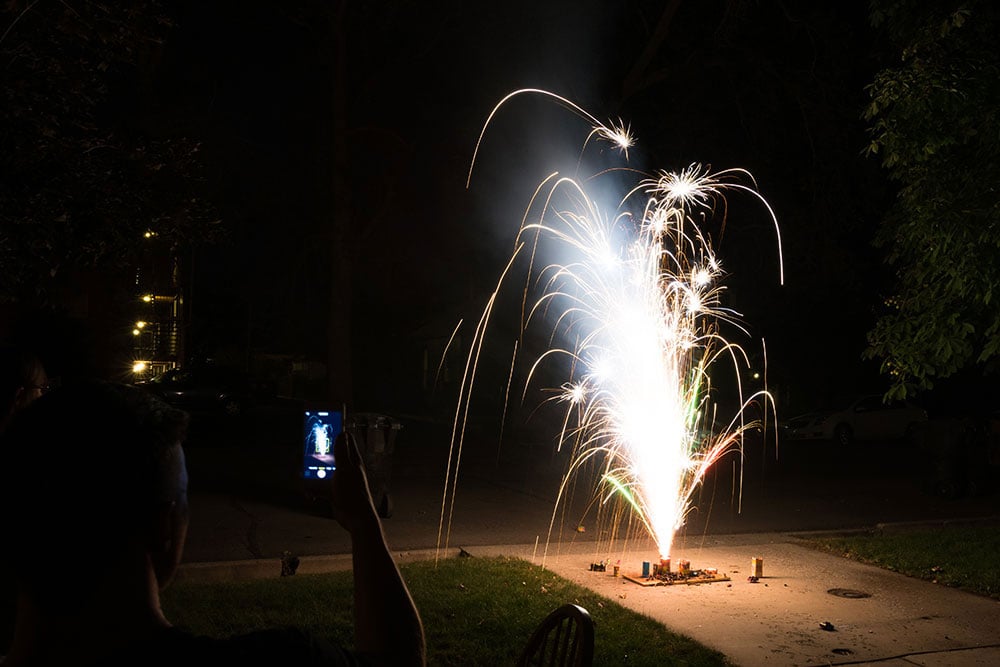Collier’s Weekly: How I Really Feel About Turning 39
Trying to navigate the ambiguous start of middle age is tricky — and a good time to try and slow down a bit.
Last week, I stopped at a restaurant I hadn’t visited since childhood. As the server led me to my table, she asked if I had been there before.
“Yes,” I replied, “although it’s been 20 years.”
Then I thought for a minute.
“Oh. It’s, uhh, been 30 years.”
I spent the meal feeling hopelessly old. (A later calculation that it was, in fact, a mere 27 years did little to help.)
This week, I’ll turn 39. That may come as a surprise to many, who often and understandably assume I’m a bit older than I actually am. (I blame my shockingly white hair, as well as the fact that some people still haven’t realized my father and I are two different people.) To me, though, this birthday feels like the full and formal arrival of middle age — that phase of life that has been encroaching for a few years.
As soon as I hit 35, I noticed there’s a lot of ambiguity to middle age (early middle age, if we want to get pedantic). If you’re past your mid-30s, young people begin to look at you as a slightly different species. While you can still have a shot at blending in with college students at 28 or 31, once the first lines show up on your face, you are no longer able to hide among the young.
The desire, though, to remain youthful remains — making for some cognitive dissonance. I’m around actual young people with some regularity through comedy or theater. When they talk about college life, I still nod knowingly; a moment later, I realize that when I was in college, they weren’t yet able to form complete sentences.
I’m pretty sure some of them think my college days pre-date the internet. Of course I took online classes! (I took the first online classes Penn State ever offered, but still!)
Meanwhile, those on the far side of middle age look at those of us in our 30s as if we’re still babes in the woods. If anything, this is more frustrating than the inverse; I know that I must look positively retro to a 21-year-old, but when treated like a whippersnapper, I get upset.
I have unexplained back pain. I have credit-card debt that’s old enough to vote. The majority of my favorite bands are partially or wholly dead. I assure you: I am not one of the young people.
Yet these reactions also give me what I’m looking for: A feeling that there’s still a lot of tread left on the tires. While a 20-year-old might wonder what long-past decade I was born in, a 60-year-old treats me as if I’m barely getting started. To anyone approaching retirement, my grumblings about increasing age must seem like a millionaire griping about a parking ticket.
Both directions are frustrating. Young folks deny the amount of years I presumably have ahead, while older folks deny the amount of life I’ve lived. No one does so maliciously, yet both feel like slights at 39.
The solution, I suppose, is to slow down and be more aware of each passing year. If I want to stop mistaking a restaurant from 20 years ago with a restaurant from 30 years ago, it’d help if I were more acutely aware of everything that happened in that time — if there weren’t long stretches of my 20s and 30s that now seem like vague and unremarkable blurs. I know that living each day with mindfulness can be exhausting, but I’m beginning to think that it’s also essential.
I used to get depressed whenever I said the phrase, “Have a good weekend.” It felt like mere minutes were passing between weekends — like weeks were speeding by unnoticed. I need to make sure that each Tuesday is as interesting as a good Saturday; insofar as I have the energy, I shouldn’t let these rapidly accelerating years pass without notice.
How do I do that? I have no idea. But 39 seems like a good time to figure it out.















